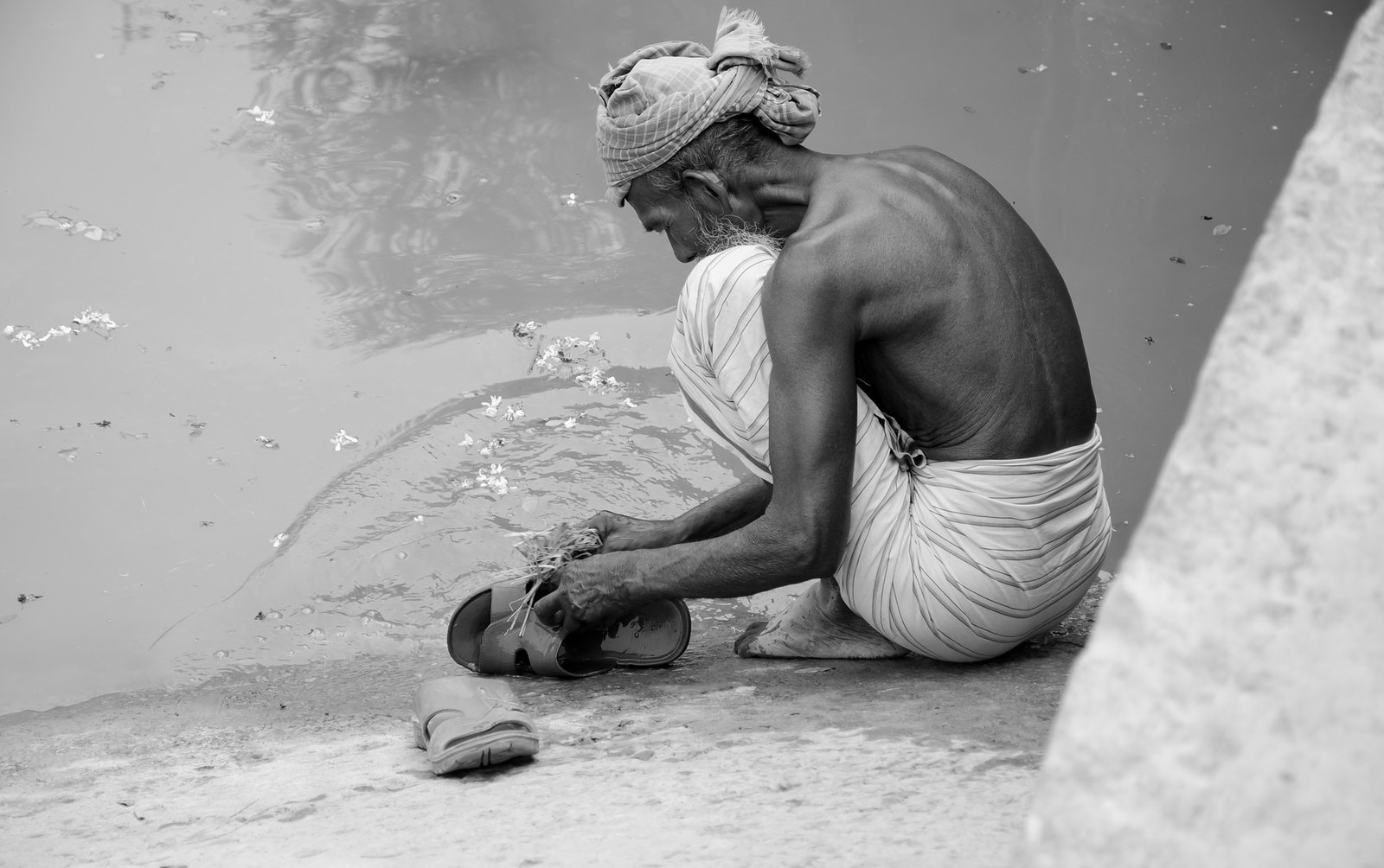Clean water, living water
By Anonymous | South Asia

Recently I had the chance to meet a man named Jalal*, who has lived in his small, rural village all his life. As a younger man he had once worked as a seasonal day laborer harvesting crops in the nearby fields, and also as a rickshaw puller - both jobs requiring stamina and muscle. Now, as a 65-year-old grandfather, he has only one leg and struggles to get around on crutches. How did this happen?
Six years ago, after decades of drinking water with a dangerously high concentration of arsenic in it, Jalal's body finally began to succumb to severe symptoms of arsenicosis, or arsenic poisoning. When he went to the hospital the doctor told him that he had gangrene on his right foot due to complications from excessive arsenic poisoning. Shortly thereafter a surgeon amputated one of his toes and eventually, a year later, his entire right leg had to be amputated in order to stop the spread of gangrene.
Arsenic contamination of groundwater is a naturally-occurring geological phenomenon which is unfortunately widespread in this area, but it's found in many other parts of the world as well - in both developed and developing countries. Poverty, high population density, and other contributing factors have made it such a major public health crisis here.
Since no villages in our area have water treatment plants, the local people drink untreated well water (groundwater) which — unlike water from ponds or rivers — is generally free from bacteria but unfortunately has lots of arsenic in it.
Two years ago, one of our field workers met Jalal when they went to his village in order to test water and look for arsenicosis patients. In addition to ensuring that he has access to a safe drinking water source, we have also accepted Jalal into our patient management program in order to help prevent any further arsenic-related health problems.
Our programme's activities include raising local awareness about the problem, testing water sources to determine the amount of arsenic present, distributing simple filters at a discounted rate to people whose water source has too much arsenic, and helping arsenicosis patients by giving them access to a doctor and needed medicines.
Jalal’s situation underscores the urgent importance of our efforts to help people stay healthy by drinking arsenic-free water. It’s our desire to see everybody in this area drinking water that is fit for life. We work towards this vision every day so that in the future, thousands of people like Jalal can start drinking safe water from an earlier age and therefore avoid the serious health problems that he has faced in the past few years.
*Names have been changed.
Pray for:
• sustainable water and sanitation programs like these across the world and in South Asia that will bring not only clean water but Living Water and the hope of Life to people who thirst.
If you think God could use you to minister in this way overseas, contact SIM today.
Related stories

Doro Clinic outreach programmes reach the forgotten with care and the gospel
In South Sudan’s Maban County, medical teams from SIM’s Doro Clinic are reaching refugees who can’t reach them, bringing healing, hope and the gospel to the sick, the stigmatised and the overlooked.

Today for Tomorrow is rooting the next generation in Christ across Southern Africa
Today for Tomorrow began with just five children when SIM mission worker Graham, Jessie and Chris Maphosa saw a gap in how children were being discipled. While serving in Zimbabwe, Chris and colleagues developed the T4T training programme to help pastors and teachers share Christ-centered lessons in ways children could understand. Today, the ministry has grown significantly and continues to shine across the region.

Our call to care for the planet goes beyond recycling: lessons on creation stewardship
As a child growing up in Canada, I thought recycling was the best way to help the planet. The world’s problems were much too big for us as children, but finally, there was something we could do as well, right from our home. But my understanding of all my efforts were turned on its head when I chatted with Ian Ratcliff, SIM's Ministry Point Person for Creation Stewardship and Care.

